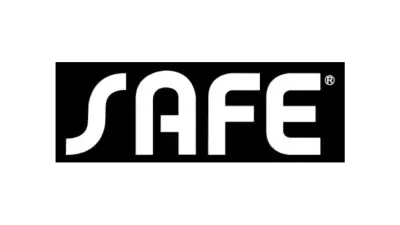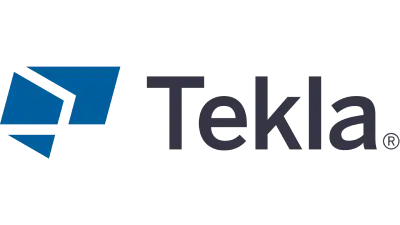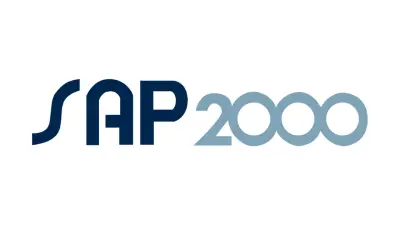Learn Structural Design Course in Hyderabad
Advance your civil engineering career with Entri’s Structural Design Course in Hyderabad. Learn modern design concepts, software skills, and real-world applications from industry experts. Build a strong foundation for top career opportunities.
Online
12 months

Structural Design Course Overview
Our Structural Design Course in Hyderabad equips you with in-demand skills in RCC, steel, and foundation design. Gain hands-on training with advanced tools, real projects, and live sessions guided by industry professionals. Earn certification and unlock high-paying opportunities.

Expert Guidance

Live workshops by leaders
Assignments

Software skills (ETABS, STAAD pro, AutoCAD)
Live Projects from Middle East
12 months Mentorship
Placement assistance

CV preparation sessions

Recorded classes
Live doubt clearing sessions
Industry Interactions
Course completion certificate
Skills Covered
Master Core Structural Design Skills
Software Tools Covered
Check out the software tools covered to equip you to be a Structural Engineer:
Job Roles
Upon finishing a structural design course, individuals possess the essential skills and knowledge to explore diverse career opportunities within the field. Here are several paths they may consider:
Structural Engineer
Design safe and efficient structural systems.
Design Consultant
Provide expert design solutions to clients and firms.
Construction Engineer
Implement structural plans at project sites.
Project Engineer
Manage design execution, resources, and timelines.
CAD Designer
Create detailed structural drawings and 3D models.
Site Engineer
Oversee on-site structural works and ensure compliance.
Structural Design Course Curriculum
Dive into the world of Structural Design with our comprehensive course syllabus.
- Who Is a Structural Engineer
- License
- Qualification
- Types of Framing, Framed, Flat slab, SW
- STANDARDS IS, BS, ACI
- Softwares reqd. (ETABS, STAAD, AutoCAD, SAFE, Tekla, SAP, GAAS etc)
- SD
- load flow chart
- work flow chart
- ETABS very basics
- STAAD basics
- Modeling of a very basic structure with 6 columns
- General Design Requirements -Stability, Stiffness, Strength, Deformability and Ductility (Codal provisions)
- Load Calculation for Gravity Loads (IS, BS & ACI)
- Load Calculation for Lateral Loads (IS, BS & ACI)
- Wind and seismic loading explain
- Stiffness modifiers
- Load combination
- Beam definition- local axis definition
- Column-local axis definition
- Slab- membrane, shell thin - local axis definition
- Walls-local axis definition
- Support condition, Pinned/fixed
- Grid assignment
- Loading assignment
- section assignment
- Wind loading
- Seismic loading, Mass source etc
- Load combinations
- Strength, Stability
- Bending moment
- SF
- Deflection, Drift
- Torsion (Equilibrium)
- Serviceability
- Mode shape
- Story Stiffness
- Design of RCC Beams
- Design of RCC slabs
- Design of RCC columns
- Design of RCC shear wall
- Design of RCC staircase
- Design of RCC Foundation
- Interpretation of Geotechnical Report and Understanding of important Geotechnical parameters
- Isolated, combined footing
- Pile ( Underreamed, DMC Pile)
- Section sizes
- rebar sizes
- rebar spacing, etc
- Historical Development And Characteristics Of Structural Steels
- Introduction To Limit States
- Design Of Tension Members
- Introduction To Column Buckling
- Introduction To Plate Buckling
- Local Buckling And Section Classification
- Laterally Restrained Beams
- Design Of Axially Loaded Columns
- Unrestrained Beam Design
- Design Of Beam-columns junction
- Design Plate Girders
- Beams Subjected To Torsion And Bending
- Composite Beams I
- Composite Floors - I
- Steel-concrete Composite Columns
- Trusses
- Welds Static And Fatigue Strength
- Bolted Connections
- Plastic Analysis
- Portal Frames
- Earthquake Resistant Design Of Steel Structures
- International Standard code
- British Standard code
- American Concrete Institute code
Eligibility for Structural Design Course
This course is ideal for civil engineering students, graduates, and working professionals seeking expertise in structural design.

Civil Engineering Basics
Foundational knowledge of construction principles.

Mathematics Skills
Understanding of applied mechanics and calculations.

Computer Literacy
Basic knowledge of design software is helpful.
Why Live Sessions?
Hosting live sessions for a structural design course offers several benefits:
Real-time interaction with expert trainers.
Clarify doubts instantly during classes.
Learn industry case studies live.
Engage in group discussions & projects.

Experts to Guide You
Get guidance from qualified professionals and industry experts with 10+ years of experience in the field.
Structural Design - Sample Certificate
Courses Recognised by

Structural Design Course Reviews
Enrolled by StudentsKey Learning Outcomes
Key learning outcomes after completing a structural design course include:
Apply RCC and steel design concepts.
Design safe and economical foundations.
Perform structural analysis using codes.
Use STAAD.Pro & ETABS effectively.
Prepare professional structural drawings.
Build confidence to handle real projects.
_6152.webp)
FAQs of Structural Design Course
Other Upskilling Courses
Entri News
Advantages of Learning from Entri
Elevate Learning Experience
Student Support
Dedicated guidance throughout your course.
Industry Networking
Connect with structural design professionals.
Practical Training
Learn with hands-on assignments & projects.
Flexible Learning
Access online sessions anytime, anywhere.
Who Can Apply for Structural Design Course
- Civil engineering graduates and diploma holders
- Structural engineers seeking advanced training
- Fresh graduates aiming to start careers abroad
- Working professionals in construction and design
- Anyone passionate about building safe, modern structures



_6527.webp)




















